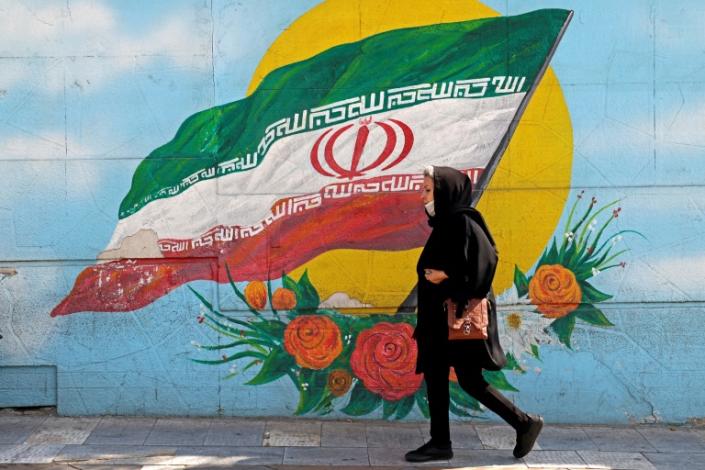
Iran has sentenced to death five people over the killing of a Basij paramilitary force member during nationwide protests sparked by Mahsa Amini’s death, the judiciary said Tuesday.
Another 11 people, including three children, were handed lengthy jail terms over the murder, judiciary spokesman Massoud Setayeshi told a news conference, adding the sentences could be appealed.
Prosecutors said Ajamian, 27, was stripped naked and killed by a group of mourners who had been paying tribute to a slain protester, Hadis Najafi.
Najafi had been killed on September 21, five days into the wave of protests that erupted across Iran after the death of Amini, following her arrest by the morality police for an alleged breach of the country’s hijab dress code for women.
Iran has struggled to quell the protests and street violence.
In a surprise move, Iran’s prosecutor general, Mohammad Jafar Montazeri, was Sunday quoted as saying that the morality police units –- known formally as Gasht-e Ershad (“Guidance Patrol”) — had been closed down.
But his comments have yet to be followed up by an official announcement and have drawn widespread scepticism.
Ajamian had died on November 3 in Karaj, a city west of Tehran, after being attacked with “knives, stones, fists, kicks” and being dragged on the street, said the judiciary spokesman.
He belonged to the Basij, a state-sanctioned volunteer force that is linked to Iran’s powerful Islamic Revolutionary Guard Corps.
– ‘War against God’ –
The five sentenced to death were convicted of “corruption on earth” — one of the most serious offences under Islamic sharia law in Iran.
The other 11, including a woman, were convicted for “their role in the riots” and received long jail terms, said Setayeshi.
The latest court rulings bring to 11 the number of people sentenced to death in Iran over the protests, described as “riots” by the authorities.
On November 20, the revolutionary court of Tehran handed down the death penalty for a person found guilty of “moharebeh”, which means waging “war against God”.
On November 16, the same court had sentenced three others to death in connection with the protests.
One was convicted of attacking police officers with his car, killing one of them, the second had stabbed a security officer and the third tried to block traffic and spread “terror”, Mizan said.
An Iranian general said on Monday that more than 300 people have been killed in the unrest, including dozens of members of the security forces.
Oslo-based non-government group Iran Human Rights said at least 448 people had been “killed by security forces in the ongoing nationwide protests”.
– Campaign of arrests –
Iran accuses the United States and its allies, including Britain, Israel, and Kurdish groups based outside the country of fomenting the unrest.
Amnesty International said on November 16 that, based on official reports, at least 21 people were charged with crimes that could see them hanged in what it called “sham trials”.
Iran currently executes more people annually than any nation other than China, according to the London-based human rights group.
Hundreds of people have been killed and thousands have been arrested, including 40 foreigners and prominent actors, journalists and lawyers.
Among them are 12 alleged members of an unnamed European-linked group accused of planning acts of sabotage.
In a statement quoted by Tasnim news agency, the Revolutionary Guards in Markazi province, southwest of Tehran, said they had arrested “a network with 12 members with links abroad”.
The statement alleged they had been “under the guidance of counter-revolutionary agents living in Germany and the Netherlands” and carried out “activities against national security”.
They had “attempted to procure weapons and intended to carry out subversive acts” but had been captured before being able to do so, it added.
The Guards statement said, about the nationwide protests, that the “riots project has failed”.
rkh-sk/dv/fz




